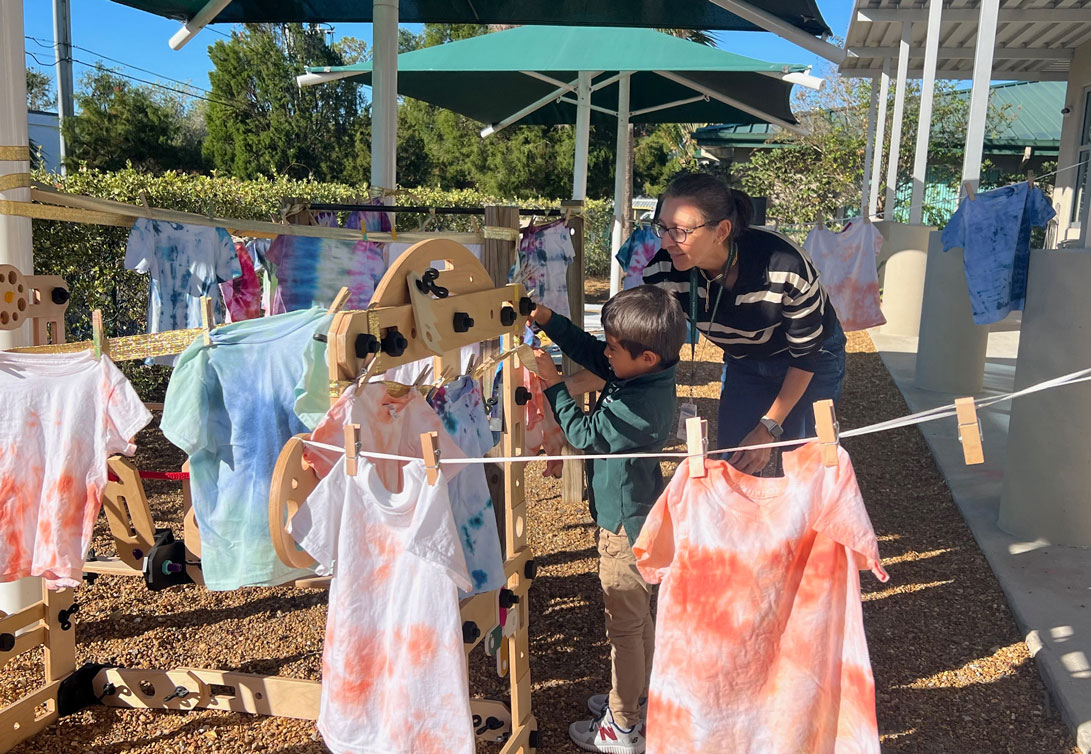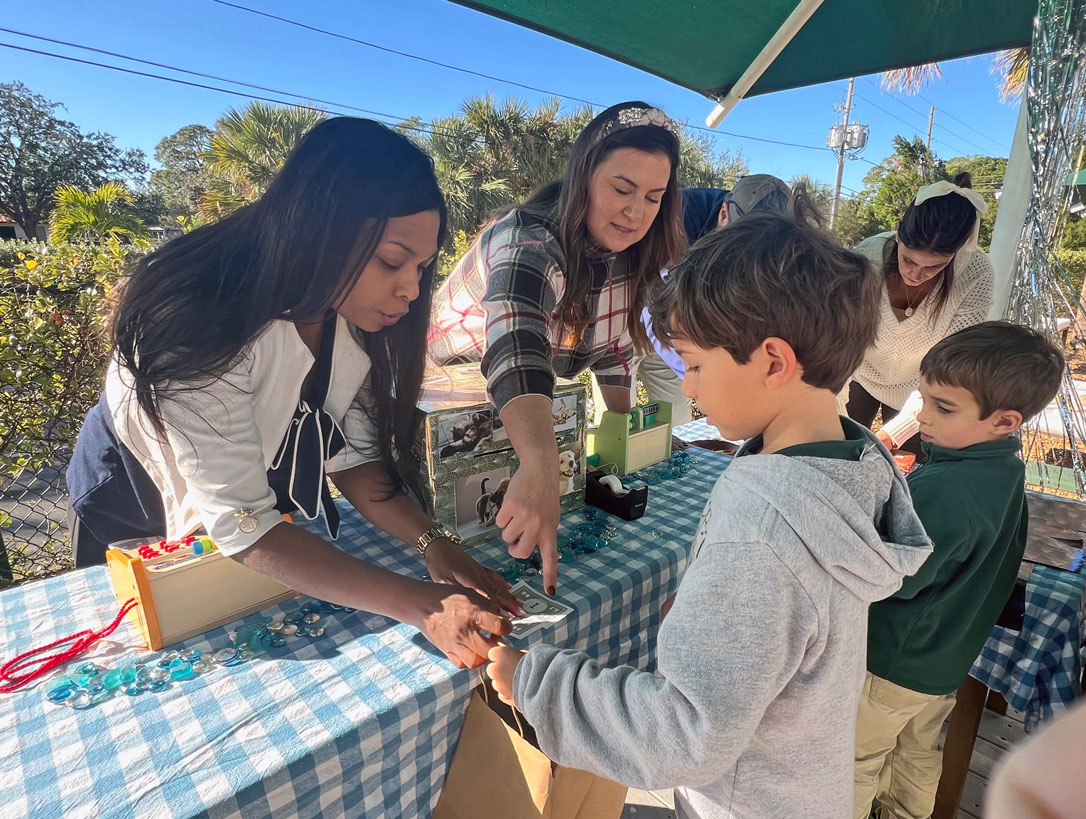

Understanding Value through an ES Winter Market
Students in The Experiential School at Shorecrest recently participated in a new signature event: the ES Winter Market. Designed by Ilaria Belloni, Associate Director of the Ross Roeder Institute for Financial Literacy, Entrepreneurship, and Economics (RRI), in collaboration with ES teachers, the Winter Market introduced young learners to the concepts of value, independent decision-making and resource allocation through a hands-on, engaging experience.
Students in Alpha and Junior Kindergarten crafted handmade items to “sell” at the market. Then each child was given $3 in pretend money: $2 to purchase two items of their choice and $1 to donate to a hypothetical animal shelter.
In the weeks leading up to the market, teachers guided students in making items while weaving in lessons about value and craftsmanship. JK students created soaps, bracelets, tie-dye T-shirts, and picture holders. Alpha students beaded keychains, baked cookies and tie-dyed T-shirts.
“The children have begun working in groups of three to make bars of grapefruit soap,” Dr. Shea Quraishi, a JK teacher, published in her weekly newsletter to parents. “They grate the peel, melt soap base, add essential oil and coloring, and pour the mixture into soap molds to create rectangular bars of soap. Every child continues to love the sensory nature of this work and is looking forward to bringing home the bars of soap once they are complete! One classmate even told his mother, ‘You don’t need to buy soap anymore!’”
 Adriana Hollenbeck, Head of The Experiential School, was available during Exploring leading up to the Market with a sewing machine and fabric remnants to help some JK students sew skirts, bandanas and purses. “Some children were not familiar with the equipment and not aware of its functionality,” she shared. “The students now understand how needle and thread connect pieces of fabric together, and they were able to create some special clothing items.”
Adriana Hollenbeck, Head of The Experiential School, was available during Exploring leading up to the Market with a sewing machine and fabric remnants to help some JK students sew skirts, bandanas and purses. “Some children were not familiar with the equipment and not aware of its functionality,” she shared. “The students now understand how needle and thread connect pieces of fabric together, and they were able to create some special clothing items.”
She emphasized that these lessons connect students with the past. “Using our hands to create something connects us with a time in which communities gathered to make items to meet basic needs. This is an important concept because we live in a fast-paced world.”
The Market itself provided a simulated real-world experience where students learned to make intentional choices. With their pretend dollars, students carefully selected two items to take home and had the option to donate the third to “an animal shelter.” Many students were thoughtful about this charitable choice, and also asked to see the dogs they were helping.
“It was important for me to let the kids make choices autonomously after they were given directions,” explained Ilaria. “If we teach them early on to be intentional using their money, to have a plan, and to stick to it, I think we are off to a great start.”
In a main tent, parent volunteers managed two cash registers, explained the “animal shelter” collection box and offered gift wrapping services.

“The opportunity for parent collaboration was great. We know parents have been craving that,” Hollenbeck shared.
The Market also tied into students’ recent social emotional learning concepts. Teachers reinforced the importance of making choices based on personal interests rather than peer influence.
Dr. Quraishi said in her newsletter: “We have practiced language to use if a friend makes a choice that doesn’t feel quite right, as well as reading stories with examples. This is a lifelong skill that is most easily learned with early practice and positive reinforcement!”
Students beamed with pride as others admired the objects they had made. “Several adults were surprised by the craftsmanship of the items, given the young age of the kids,” Ilaria said. “This is the product of our ES philosophy that the teachers implement in the classrooms every day.”
The RRI team bookended the experience with scaffolding for the teachers, introducing key concepts beforehand and facilitating a reflection afterward.
“With the RRI signature programs, we want to create activities that kids look forward to,” Ilaria noted. The Winter Market accomplished that goal and more. Students were exposed to the concept of value, they used pretend play to simulate making a purchase transaction, and they were able to make choices independently. The young Chargers walked away excited about learning the meaning of value, intentionality and giving back—all while having fun and being proud of their accomplishments.















![JK on the Run [Photos] JK on the Run [Photos]](/Images/1px.png?command_1=url&url_1=https%3A%2F%2Fwww.shorecrest.org/userfiles/shpsv2mvc/images/news-images/JKontherun.jpg&command_2=resize&height_2=85)









